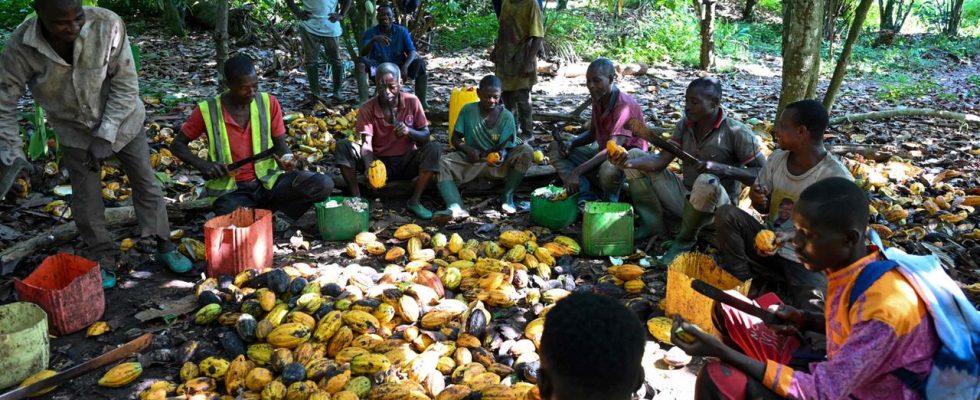The price of cocoa is rising, and the producing countries are also feeling this. But little is received by the farmers. They are faced with extreme weather and inflation – and a fatal price guarantee.
The warehouses in Ivory Coast should actually have been well filled at the end of 2023. But in the summer, heavy rains rained down on the trees, just at the time of the cocoa blossom. The harvest was “catastrophic,” perplexed farmers told the AFP news agency.
The flowers fell off due to the rain and the cocoa could not handle this amount. Farmer Siaka Sylla spoke of the “worst year” since he started working in the business.
The few fruits that were able to ripen were often rotten inside. Also a result of the heavy rain and the long-lasting humidity.
A new year and a new worry
Now, in the new year, drought is plaguing the cocoa plantations. The poor harvests from West Africa are driving up world market prices, says Hélène Kouamé. She is a cocoa farmer and runs a cooperative that processes and exports the cocoa in the country. She says that due to the scarce harvest, she now has to buy cocoa at a higher price.
It is forced to pay farmers a price that is higher than the per tonne level set by the State Coffee-Cocoa Council.
Ivory Coast is not only the world’s largest cocoa producer, a good 20 percent of the population also works in this sector. However, the Ivorian farmers do not benefit much from the increased prices. The majority of them live on less than 0.67 euros per day. The beneficiaries are the large international chocolate manufacturers.
On top of the climate crisis comes inflation
The poverty of farmers is increasingly becoming a social problem in Ivory Coast. It’s not just the increasingly frequent severe weather events that are affecting them. Strong inflation also means that farmers can hardly afford the high costs of pesticides and fertilizers.
Here too, the result is a decline in harvest. And then there is no money for harvest workers. This is also why the proportion of child labor on cocoa plantations is increasing.
Price guarantee with consequences
The State Coffee-Cocoa Council has actually been trying to support its farmers for a few years with a set price per season and a government bonus of $400 per ton. Experts say that because the price is set by the government before the harvest, farmers do not benefit from the current high prices.
Cocoa producer Hélène Kouamé also sees it that way. Rather, Ivory Coast’s current policy leads to a “rock bottom price”. She points out that the set price applies from October 1st to March 31st – and that the market price increases during this time is not something we are used to. Now she hopes that producers will benefit from a price increase in the next campaign in October 2024.
The trees are cut down
In addition, many cocoa trees are old and susceptible to diseases. Therefore, many farmers are creating new fields and cutting down forests to do so. Ivory Coast has lost around 85 percent of its forest since 1960.
In Europe they are trying to respond to this problem. A new EU regulation will apply from the end of the year. It prohibits companies from purchasing cocoa grown on such deforested land. This could protect important forests in West Africa, but could also lead to affected farmers becoming even more impoverished if they are not paid better for less cocoa.
Dunja Sadaqi, ARD Rabat, tagesschau, March 27, 2024 1:00 p.m

